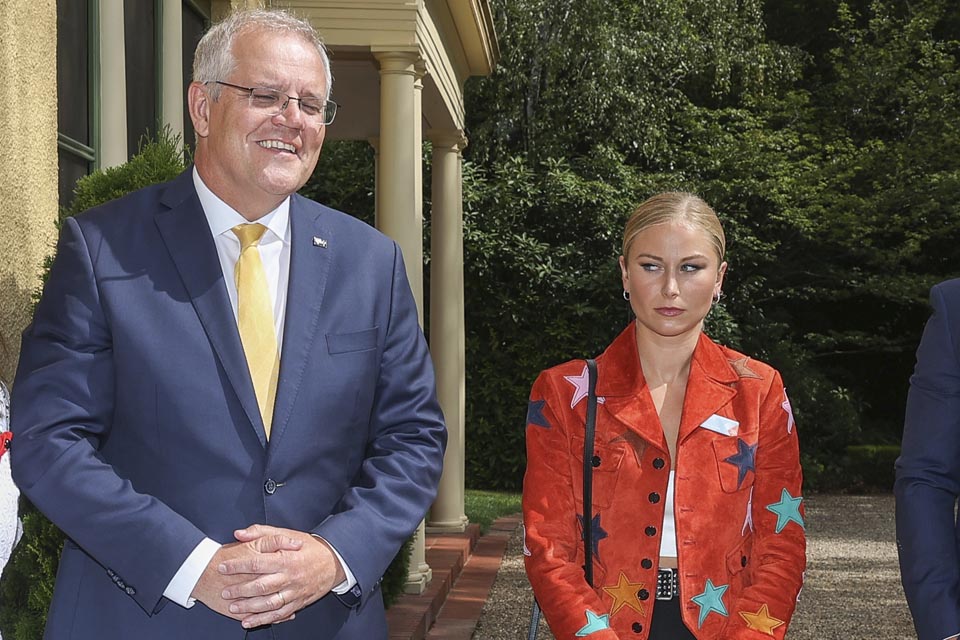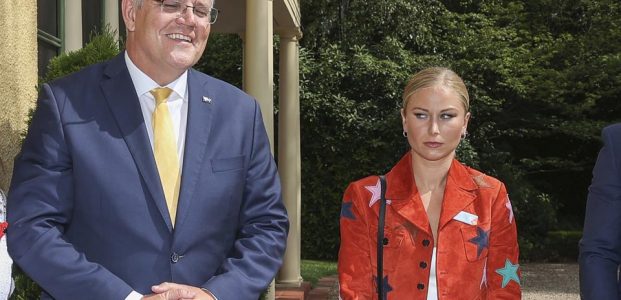CW: This article includes mentions of sexual assault which some readers might find distressing. If you need to seek out assistance or support, contact 1800 RESPECT.
On 13 February, Channel 9 aired its exclusive and now controversial 60 Minutes interview with Prime Minister Scott Morrison and his wife, Jenny Morrison.
While the interview could have been an opportunity for the Morrisons to condemn the majorly sexist culture that has become synonymous with Parliament, show more empathy and support for sexual abuse survivors, creating a safe space for more female victims to speak up, the interview proved to be incredibly disappointing. Instead, Jenny Morrison criticised former Australian of the Year recipient and sexual assault activist, Grace Tame, in regards to a frosty exchange at this year’s Australian of the Year function at The Lodge in Canberra.
As 2022 marks the year where tens of thousands of Australians will head to the ballot box in the Federal Election, as well as the one-year anniversary of Brittany Higgins publicly (and bravely) alleging that she had been sexually assaulted by a former colleague in Parliament House, the interview appeared to be a tactless and insensitive attempt at political sanitisation. As this year’s International Women’s Day theme encourages people all around the globe to break the bias surrounding gender inequality, one question remains as prominent as ever: How can we break the bias when politicians and people in the media fail to show support for sexual assault victims?

During the interview, Jenny Morrison told host Karl Stefanovic that she was “a little [disappointed]” by Grace Tame’s refusal to smile and their frosty interaction at the function last month. She stated that she wants her own daughters to grow up to be fierce, strong and independent but still “be polite and have manners”.
Jenny Morrison failed to mention Grace Tame’s well-founded reasons for not smiling, which included the assertion that “abuse culture is dependent on submissive smiles” and civility, nor did she praise Tame for her contribution to public life and paving the way for women to come forward and share their experiences.

On such a public forum, Jenny Morrison’s criticism towards Grace Tame certainly feels like an attempt to discredit the hard work of Tame and Higgins to help consolidate an end to sexual abuse and misogyny in Parliament, and more broadly, across all workplaces. Deputy Prime Minister Barnaby Joyce has supported Jenny Morrison’s comments and reinforced that the office should be respected at all times. This notion dangerously reinforces the narrative of women’s experiences not being taken seriously and perpetuates the culture of a lack of accountability from those that are in leadership roles. It also continues the pattern that women are only allowed to be a palatable amount of “angry”, and that men’s comfort is still prioritised.
If we wish to see a change with breaking the bias, it has to start from people at the top setting a good example and taking responsibility when it’s due.
Jenny Morrison, a woman with an undoubtedly high public profile and has the ear of the prime minister, could have used the interview to show her solidarity with fellow women, condemn the compliance witnessed in Australian politics and create an environment where victims are able to come forward and share their stories. Instead, her comments feel like a swipe towards an important movement and gives rise to the fact that more needs to be done by authoritative figures to achieve gender equality.

